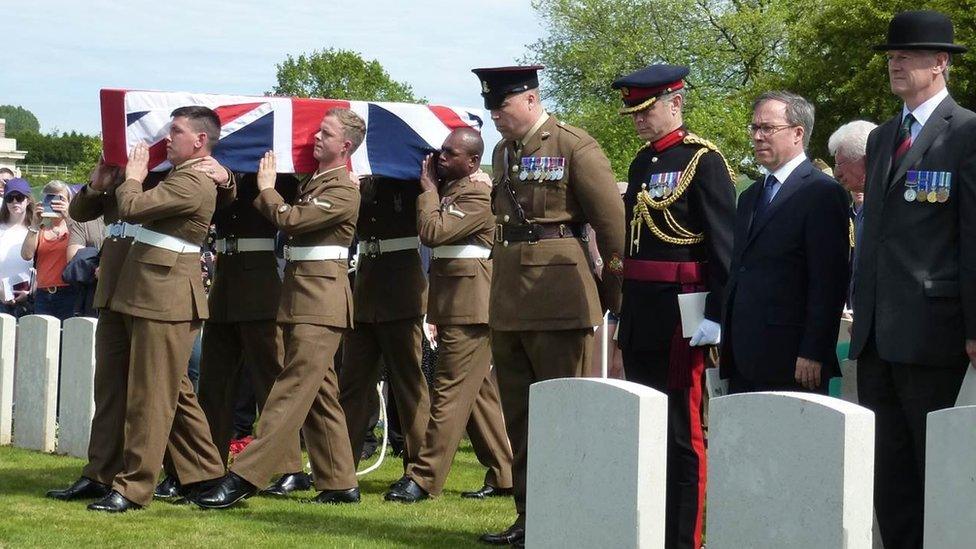World War Two remains in France may be missing dad, son told
- Published
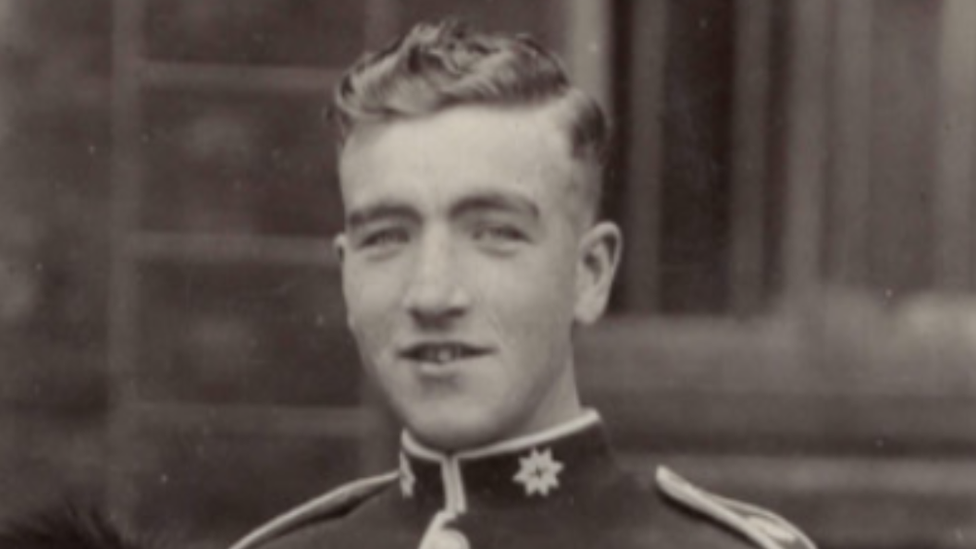
Guardsman David Blyth was reported missing in action in August 1944
Human remains found on a former World War Two battlefield in France may be those of a missing East Yorkshire soldier, his son has been told.
Sherman tank driver David Blyth, 25, was posted as missing during the Battle of Normandy on 4 August 1944.
Bone fragments, along with the debris of a tank, were discovered by a farmer ploughing a field near La Marvindière.
Guardsman Blyth's son, Peter, is now awaiting the DNA test results to see if the remains are that of his father.
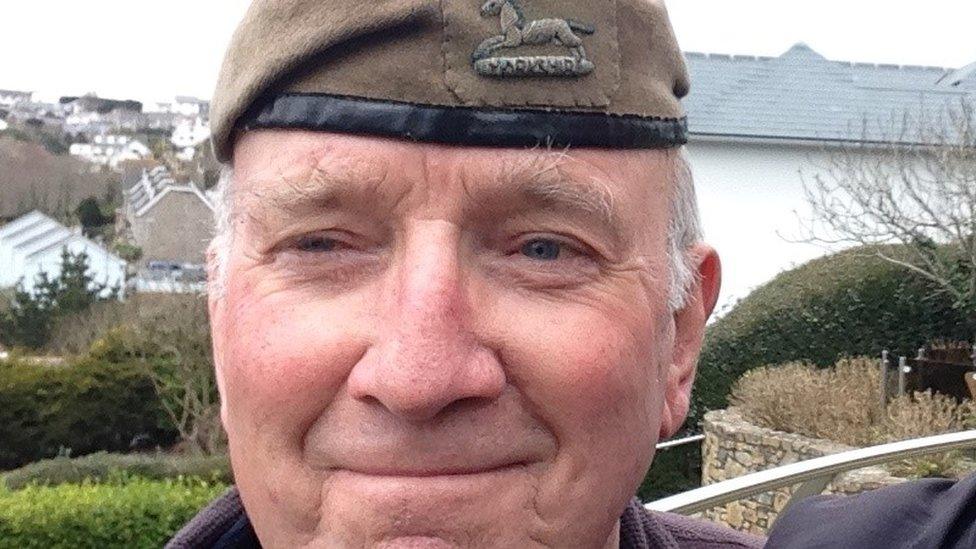
Peter Blyth followed in his father's footsteps and joined the British Army.
Mr Blyth, 81, from near Hornsea, East Yorkshire, said: "If the remains turn out to be my father, it would bring closure.
"My mother fully expected him to walk through the door, saying 'What's for tea, love?' But of course he never did."
Mr Blyth was contacted last month by the Ministry of Defence's Joint Casualty and Compassionate Centre, external (JCCC), which investigates human remains found on old battlefields.
Correspondence sent to Mr Blyth - and seen by the BBC - reveal "small fragments" of human remains had been discovered among the debris of a Sherman tank in 2015.
Since the Sherman was an American-built tank, the remains were despatched to U.S. authorities.
However, further research found that particular type of Sherman would have been used by the British and the remains were then passed to JCCC.
Also found was what appears to be a badly damaged cap badge of the Coldstream Guards - Guardsman Blyth's unit.
A JCCC caseworker informed Mr Blyth it is possible the wreckage is from a tank commanded by Lt John Keatinge.
The bodies of Lt Keatinge, 20, of the Irish Guards, and Guardsman Eric Wyatt, 21, of the Coldstream Guards, were identified. Both are buried in Normandy.
However, the fate of crewmembers Guardsman Blyth, who briefly lived in Lincolnshire prior to the war, and two other Coldstream Guards - William Bayliss, 22, from Leicestershire, and Leonard Markham, 23, from Hornsea, East Yorkshire - remains unknown.
Mr Blyth said he head been told by the JCCC that while it is likely his father was buried in a war cemetery as an "unknown soldier", it is possible the bone fragments found in 2015 could be his "additional remains".
Those remains, because of the position in which they were found, are most likely to be of the driver and co-driver who, war records show, were not recovered until 10 August 1944 - six days after the tank was destroyed.
Inquiries by the JCCC, combined with Mr Blyth's own research, points to the driver and co-driver as being Guardsman Blyth and Guardsman Markham, respectively.
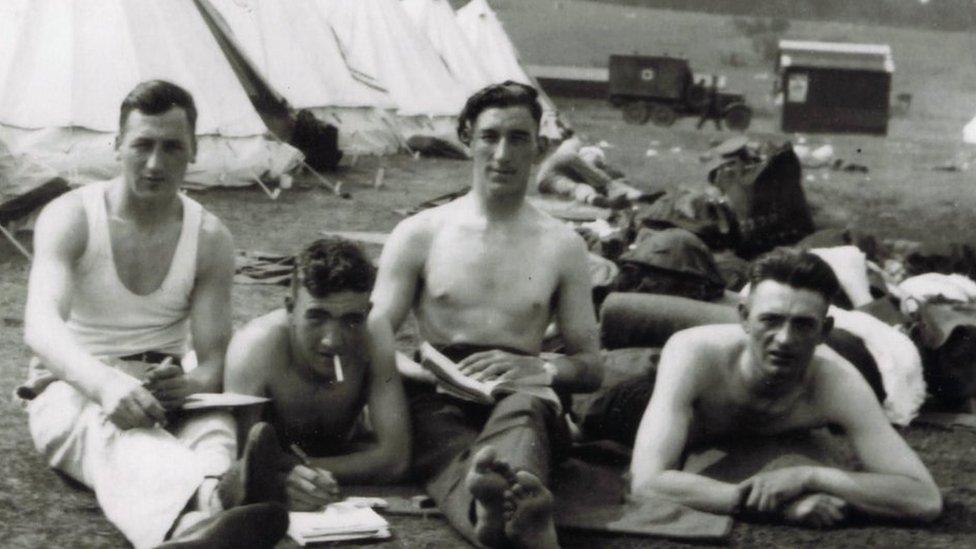
Guardsman David Blyth, second from left, relaxes with unknown comrades
Mr Blyth, who was three when his father went missing, said: "I was quite lifted when they got in touch. I have been rooting around for years, trying to find out what happened to my father."
Inspired by his late father, Mr Blyth went on to join the Army, serving for 45 years including the 1960s Aden conflict and in Bosnia in the 1990s.
He retired a major in the Prince of Wales's Own Regiment of Yorkshire in 2002.
Mr Blyth said: "I suppose everyone needs a hero - he was mine."

Follow BBC East Yorkshire and Lincolnshire on Facebook, external, Twitter, external, and Instagram, external. Send your story ideas to yorkslincs.news@bbc.co.uk, external.
Related topics
- Published29 September 2021
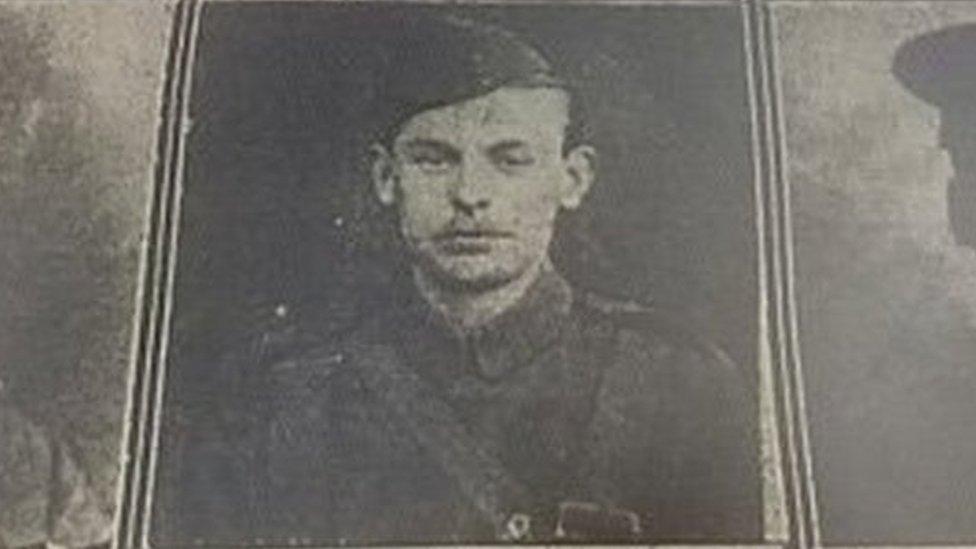
- Published17 May 2017
